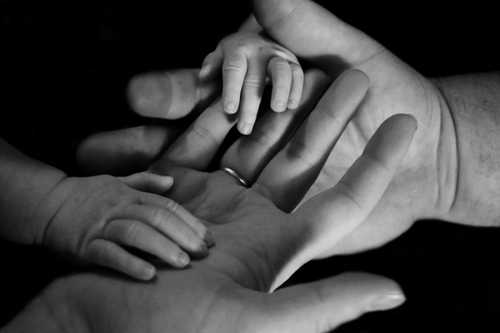In global report, U of M researchers find institutional care negatively impacts children's development

Millions of separated children worldwide who live in institutions like orphanages or residential homes should be transitioned to family-based care environments, according to a new global report co-authored by an international group of authors that included three University of Minnesota researchers. Researchers found family-based care environments — such as kinship networks, foster care, adoption or kafalah — provide the care, socialization, and protection are required for a child’s healthy development.
The researchers were part of an international group of 22 field-leading experts who contributed to a The Lancet Group Commission on the Institutionalization and Deinstitutionalization of Children.
“What these findings make clear is that human infants evolved to develop in the context of relationships. Strip them of close and consistent relationships and they cannot thrive. Although children can be remarkably resilient, it is easier and better to get it right the first time,” said co-author Megan Gunnar, a Regents Professor in the Institute of Child Development. “This means working across the globe to stabilize and support families and to find the most family-like arrangements for those children who end up being without permanent parents. This is a tall task globally, but one that deserves our concerted attention and effort.”
The report, published in two parts, includes a review and meta-analysis of the effects of institutionalization and deinstitutionalization on children’s development and makes 14 policy recommendations. The Commission also included an executive summary and four commentaries from leaders in the field.
In the first part of the Commission, published in The Lancet Psychiatry, the authors reviewed 308 studies from the past 65 years to compare the developmental effects of growing up in an institution with growing up in a family or family-like environment. They also examined whether transitioning from institutional care to a family-like environment would lead to recovery. The studies were conducted across 68 countries and involved over 100,000 children.
The authors found that institutional care is strongly associated with negative impacts on children’s development, including physical growth, brain growth, cognition and attention. They also found significant, but smaller, negative associations between institutionalization and socioemotional development and mental health.
“Perpetuating the status quo of institutional care is no longer morally defensible. Within a family we learn to be complete human beings, so depriving children of this experience is a violation of their human rights,” said co-author Dana Johnson, a professor in the Department of Pediatrics and Adoption Medicine Clinic in the U of M Medical School. “Not only must we change our future focus to family-based care, but we must ensure that children currently experiencing the adversity of institutional care have the opportunity to flourish with the help of nurturing parents and appropriate social, medical and mental health support."
According to the authors, the effects on institutionalized care may be especially harmful to children aged six to 24 months, and longer stays in institutions are associated with larger developmental delays. However, they noted that negative effects can be rapidly reduced after a child is removed from institutional care, while seriously affected children may still experience long-term, substantial impacts.
In the second part of the report, published in The Lancet Child & Adolescent Health, the authors recommended evidence-based policy changes at the global, national and local levels to promote family-based alternatives to institutionalized care. Recommendations include that:
- international agencies should work together to progressively eliminate institutions and promote family-based care;
- national organizations should measure the number of children in different types of alternative care and prioritize investment in family-based care options; and
- local programs should build well-trained teams of social workers and psychologists to help children transition from institutions to family-based care.
Philip Goldman, an adjunct professor in the Department of Pediatrics and Adoption Medicine Clinic, was also a co-author of the report.
- Categories:
- Health





